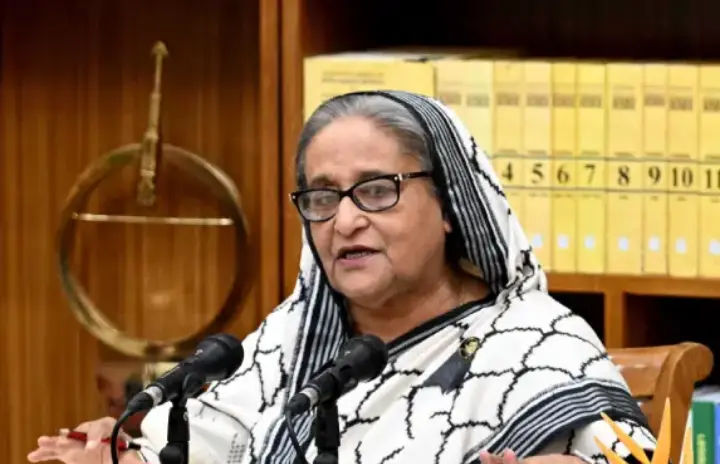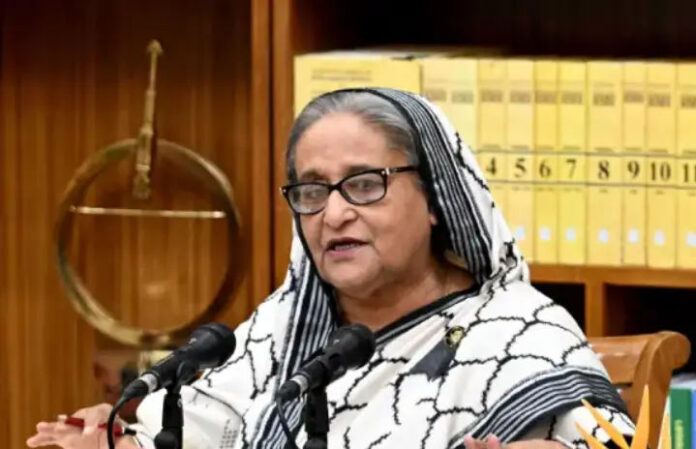
In a major political development, Bangladesh’s interim government has officially banned the activities of the Awami League, the political party of former Prime Minister Sheikh Hasina. The move, announced on Saturday, comes amid an ongoing trial over the party’s alleged involvement in a deadly crackdown on mass protests last year.
According to United Nations estimates, as many as 1,400 people were killed in July 2024 when the Hasina-led government launched a brutal campaign to suppress opposition protests. The international community condemned the crackdown, which eventually led to Hasina’s ouster and the installation of a transitional administration headed by Nobel Peace Prize laureate Muhammad Yunus.
“Sheikh Hasina’s Awami League has been banned under the Anti-Terrorism Act until the conclusion of the ongoing tribunal against the party and its leaders,” said Asif Nazrul, an advisor to the Yunus government on legal affairs. He added that the ban includes all activities in both physical and cyberspace and was enacted to safeguard national security and protect tribunal witnesses and plaintiffs.
The Awami League, which has strongly denied the charges against its leadership, slammed the decision as “illegitimate” and politically motivated. Hasina, who has been in self-imposed exile in India, is defying an arrest warrant issued by Bangladeshi authorities on charges of crimes against humanity.
Simultaneously, the interim administration approved amendments to the International Crimes Tribunal Act, granting it powers to prosecute political parties and affiliated organizations, a move seen as directly targeting the Awami League.
The government’s decision follows widespread public pressure. Just a day prior to the announcement, thousands gathered outside Muhammad Yunus’s residence demanding the banning of Hasina’s party.
In a related development, former Awami League leader Abdul Hamid, also under investigation, successfully fled the country on Thursday. Authorities have since dismissed at least three police officers for negligence in allowing his departure via the airport.
As the tribunal proceedings continue, the political future of Bangladesh remains uncertain, with deepening divisions and heightened scrutiny from both domestic and international observers.
Sources By Agencies



